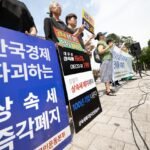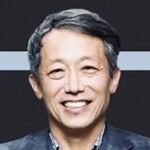South Korea saw a record-high number of foreign tourists post-COVID-19 in the first quarter of 2024.
The South Korean Ministry of Culture, Sports and Tourism and the Korea Tourism Organization said on Monday that foreign visitor numbers in March reached 1,488,365.
This contributed to a first-quarter total of 3,394,521 visitors, reaching 88.6% of the numbers seen in the first quarter of 2019, before the pandemic.
Chinese tourists led the surge with 1,015,101 visitors, drawn particularly to visa-free entry to Jeju Island.
Japanese tourists also came in large numbers, totaling 665,893. About 340,000 Japanese tourists visited in March alone, thanks to the participation of Shohei Ohtani in the Major League Baseball season opener in Seoul in the month.
Visitor numbers from Taiwan, the US, and Vietnam surpassed their first-quarter totals from 2019.
Looking ahead, the South Korean government expects tourist numbers to climb even higher during key vacation periods such as Japan’s Golden Week (April 27 to May 6) and China’s Labor Day holiday (May 1 to 5), with 100,000 Japanese and 80,000 Chinese tourists already booked for these holidays.
Further underscoring the tourism sector’s rebound, Japanese travel agency HIS has reported a 1502.1% increase in cruise bookings to Jeju Island compared to last year, heralding a robust rebound in travel interest.
By Sun A Lee
suna@hankyung.com















